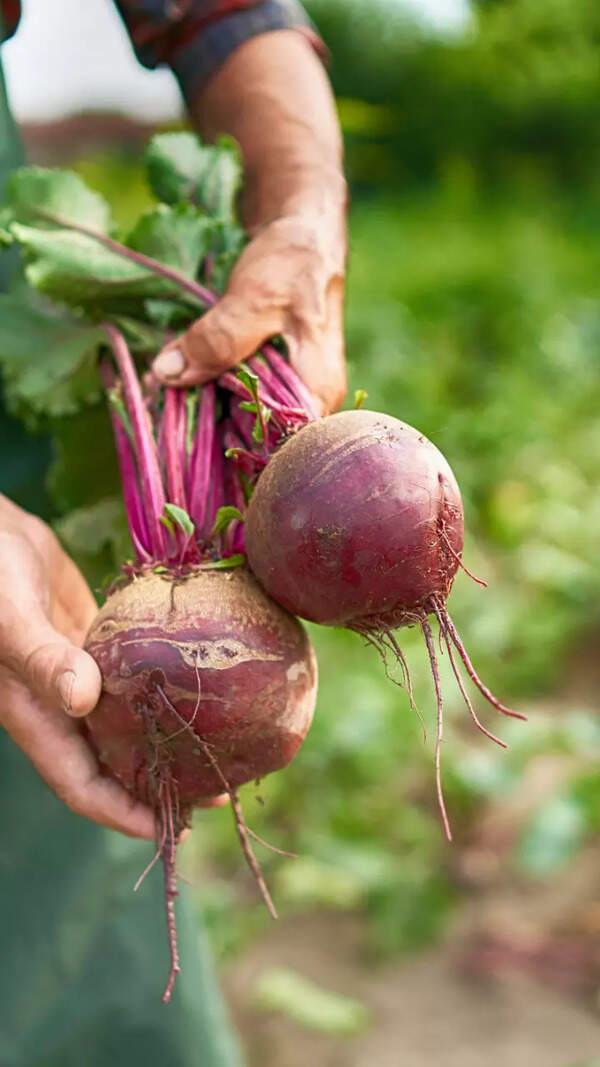6 reasons to eat sprouts for breakfast

Benefits of eating sprouts
When it comes to healthy and filling breakfast options, experts often recommend consuming sprouts, as they offer a multitude of health benefits due to their rich nutritional profile and bioactive compounds. For the unversed, sprouts are young, tender shoots that grow from the seeds of vegetables, grains, or legumes after they begin to germinate. It is proven that sprouts are abundant in vitamins such as B-complex, C, and E, and minerals like manganese (Mn), copper (Cu), and selenium (Se). These nutrients play vital roles in metabolic processes and antioxidant defense mechanisms. As per a study published by the National Library of Medicine, titled Edible Plant Sprouts: Health Benefits, Trends, and Opportunities for Novel Exploration, sprouts can improve insulin function, potentially benefiting individuals with diabetes. Take a look at these 6 benefits of eating sprouts daily for breakfast.

Rich in nutrients
Sprouts like mung beans, chickpeas, and lentils are rich in plant-based protein, essential for muscle repair, immunity, and energy. They are also rich in dietary fiber, that aids digestion, keeps you full for longer and aids in gut health and weight management. They are also rich in vitamins A, C, K, and B-complex like B1, B2, B6, and folate, which are necessary for energy, metabolism, and brain function. They are also rich in iron, magnesium, zinc, calcium, phosphorus, and potassium.

Boost brain health
Sprouts are rich in B1 thiamine), B6, and folate—essential for brain function, memory, and mood regulation. They are said to support the production of neurotransmitters like serotonin and dopamine, which affect mood, focus, and alertness. They also help reduce oxidative stress in the brain, which is linked to cognitive decline and aging. And the presence of minerals like iron and magnesium help improve blood flow to the brain, enhancing mental clarity and focus.

Strengthen immunity
Sprouts are rich in vitamin C, which help boost white blood cell production and strengthen the body’s natural defense against infections.They also contain flavonoids and polyphenols that fight free radicals and reduce oxidative stress—key to a strong immune system. And packed with zinc and iron, they help boost immune cell development and its functioning. Sprouts also help flush out toxins, keeping the body clean from within—an important part of long-term immunity. And as per experts, vitamin A and E found in sprouts help protect the cells and mucous membranes from pathogens and support skin immunity.

Aid weight loss
They are low in calories and great for portion control and satiety, which aid weight loss. Protein in sprouts like moong, lentils, chickpeas keeps you full for longer, reduces cravings, and supports fat burning. Fiber in sprouts helps slow digestion, prevents overeating and supports healthy gut health, which is crucial for weight loss. They also have high water content and aid in detox—flushing out bloating and helping with water weight loss.

Boost metabolism
Protein found in sprouts help increase the thermic effect of food (TEF)—your body burns more calories digesting protein, which helps speed up metabolism. And fiber helps regulate blood sugar levels and keeps digestion steady, which prevents metabolic slowdowns and crashes. Sprouts also contain B1, B2, B3, B6, and folate and these vitamins play a key role in converting food into energy, a crucial part of metabolic function. They also contain active enzymes that improve digestion and nutrient absorption, which further helps boost metabolism.

Regulate blood sugar
Sprouts have low glycemic index, hence they digest slowly and release glucose gradually, preventing sudden blood sugar spikes. Fiber slows down carbohydrate absorption, keeps you fuller longer, and stabilizes post-meal blood sugar levels. It is also said that sprouts (especially fenugreek and moong) can enhance insulin response, helping cells absorb glucose more efficiently.
All Images Courtesy: istock








